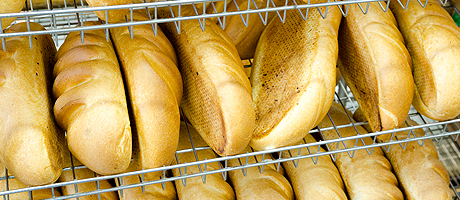Analytics

The laboratory de Microbiología de Alimentos y Aguas offers to the industry its wide experience and training for the performance of analytical techniques (most of them according to ISO standards) that allow the detection, quantification and identification of microorganisms present in the samples sent for analysis. Contact us at apply for for more information and/or budget of our tests.
Microbiological testing of foodstuffs
We carry out the counting and research of most indicator, spoilage and pathogenic microorganisms that can be found in food products, taking into account legislative requirements (mesophiles, enterobacteria, coliforms, lactic bacteria, moulds and yeasts, Pseudomonas spp., Escherichia coli, coagulase-positive Staphylococcus , Salmonella spp, Listeria monocytogenes, Bacillus cereus, Clostridium perfringens, etc.). All tests are carried out according to standardised methods (ISO, AFNOR).
Microbiological tests on water
We offer the usual microbiological parameters for the control of water for public consumption according to RD 902/2018, bottled drinking water, swimming pool water and cooling towers: aerobic counts at 22ºC and 37ºC, total coliforms, Escherichia coli, intestinal enterococci, Clostridium perfringens, Pseudomonas aeruginosa. All tests are carried out according to standardised methods (ISO, AFNOR).
Microbiological testing in canning
The canning industry can count on our availability to carry out the microbiological tests necessary to guarantee the safety of their products:
-
Stability control of canned food according to NF V 08-408.
-
Sterility control of canned food
-
Isolation and identification of spoilage micro-organisms
Environmental and food handler controls
Critical points in your production process can be monitored by performing different microbiological tests:
-
Microbiological control of surfaces, equipment and utensils (total micro-organisms, indicators, pathogens).
-
Microbiological air monitoring (filtration equipment)
-
Microbiological control of food handlers(Staphylococcus, Enterobacteriaceae, Salmonella)
Microbiological testing of pharmaceuticals
All tests are performed according to specific regulations (European and/or American Pharmacopoeia, etc.):
-
Validation of microbiological testing methods for non-sterile products according to Pharmacopoeia.
-
Productivity controls of culture media according to Pharmacopoeia.
-
Controls on purified water and water for injections.
-
programs of study of antibiotic efficacy and antifungal efficacy (determination of minimum inhibitory concentration and minimum bactericidal concentration, antibiograms).
-
programs of study stability.
-
Sterility testing of pharmaceutical products.
Microbiological tests on chemicals and treated surfaces
All tests are performed according to specific standards (EN, JIS, ISO):
-
assessment of antibacterial activity of surfaces according to ISO 22196 (JIS Z 2801) (antimicrobial coatings of surfaces and/or equipment).
-
assessment of the bactericidal activity of disinfectants according to NF EN 1276 (essay in suspension).
-
assessment of the fungicidal activity of disinfectants according to NF EN 1650 (essay in suspension).
-
assessment of the sporicidal activity of disinfectants according to UNE EN 13704 (essay in suspension).
-
assessment of the bactericidal and/or fungicidal activity of chemical disinfectants used in foodstuffs, industry, households and communities according to UNE EN 13697 (essay on non-porous surfaces).
-
assessment of the bactericidal activity of chemical antiseptics and disinfectants used in the veterinary area according to UNE EN 1656 (essay in suspension).
-
assessment of the bactericidal activity of chemical antiseptics and disinfectants used in the veterinary area according to NF EN 14349 (essay on non-porous surface).
Contact
Dr. Anabel Vitas
avitas@unav.esUniversity of Navarra
C/ Irunlarrea s/n
31008 Pamplona, Spain
sample receptionschedule : 8:30 to 14 h. and 16:00 to 18:00h.
+34 948 42 56 00
Ext. 806477
